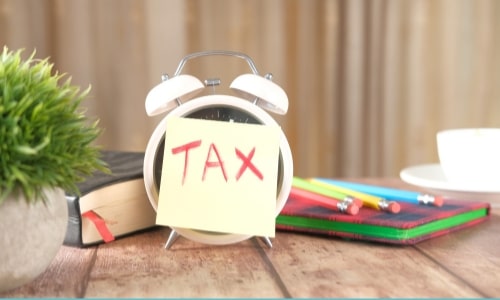Best Investment Plans in UAE
The UAE offers a favourable environment for both residents and expats to grow their wealth through a variety of investment plans. With no income tax and an ever-evolving market, there’s a wealth of investment opportunities available. If you’re looking to secure your financial future in 2025, here’s ...read more
Investing is not just about saving money — it’s about putting your money into assets that have the potential to grow in value or generate returns over time. Instead of leaving your funds in a savings account with low interest, you can invest in assets that appreciate, like stocks that pay dividends or properties whose value rises over time.
In the UAE, investment options range from stocks, bonds, and mutual funds to real estate, cryptocurrencies, and more. Each investment type serves different financial goals, whether it’s to secure long-term wealth, generate passive income, or mitigate risks.
Best Investment Plans in UAE
Some of the best Investment quotes in UAE & Dubai are:
Top Investment Options in UAE
Here are the best investment plans UAE that you can consider to fulfill your short-or-long-term goals —
1. Real Estate Investments
Real estate remains one of the most lucrative investment options in the UAE. With rapidly growing cities like Dubai and Abu Dhabi, properties have the potential for substantial capital appreciation. Additionally, rental yields in certain areas are competitive, making real estate an attractive option for those seeking steady income.
2. Stocks & Equities
Investing in stocks through UAE-based exchanges like the Dubai Financial Market (DFM) or the Abu Dhabi Securities Exchange (ADX) provides opportunities for high returns. Stocks can be volatile but offer capital gains and dividends. For those looking for high-growth sectors, the UAE has a strong financial, real estate, and energy sector.
3. Bonds
Bonds, especially government bonds, are considered a safer investment in the UAE. They provide consistent returns with relatively low risk compared to stocks. Bonds are perfect for conservative investors looking for predictable income streams.
4. Mutual Funds
Mutual funds pool money from various investors to invest in a diversified portfolio of stocks, bonds, and other assets. For those looking to invest in a diversified manner without picking individual stocks, mutual funds are a great option. They are managed by professionals and can accommodate both low-risk and high-risk investors.
What are Shariah Investments? |
|---|
|
Shariah investments are Islamic funds that adhere to the principles of Shariah law. These investment options are popular in the UAE, especially for those seeking socially responsible investment opportunities. The core difference between Shariah-compliant investments and traditional investments is that the former must follow strict ethical guidelines set forth by Islamic law. Key Requirements of Shariah Investments:
|
5. Exchange-Traded Funds (ETFs)
ETFs are an efficient way to invest in a diversified portfolio. These funds are traded like stocks and track a specific index or sector. They offer several advantages like: liquidity, low fees, and broad exposure to markets. In the UAE, ETFs focused on sectors like technology, energy, or even global markets are gaining popularity.
6. Gold
Gold has always been a safe haven for investors in the UAE. Due to its stable long-term returns and protection against inflation, investing in gold—whether through physical gold or gold-backed ETFs—is a secure way to preserve wealth.
7. Cryptocurrencies
With the rise of blockchain technology, many investors are turning to cryptocurrencies like Bitcoin and Ethereum. Although volatile, cryptocurrencies have shown massive growth and are increasingly accepted as part of the modern investment landscape. However, they are suitable for investors who can stomach high risk.
8. Pension Plans & Retirement Funds
Although UAE’s tax-free environment is attractive, securing a retirement plan is still crucial. Pension plans and long-term retirement funds like those available through banks and financial institutions can help ensure financial security post-retirement.
9. Private Equity
Private equity investments involve investing in companies that are not listed on the stock exchange. These are typically high-risk but offer substantial rewards. In the UAE, private equity firms focus on diverse sectors like real estate, healthcare, and tech, making it an attractive option for high-net-worth individuals.
10. Real Estate Investment Trusts (REITs)
REITs allow investors to pool money and invest in large-scale real estate projects. They provide access to property investments without the need to own physical property. REITs in the UAE focus on commercial and residential properties and offer high liquidity, making them an attractive option for investors seeking passive income.
How to Calculate Investment Return in UAE?
To estimate the returns on your investments, you can use an SIP Calculator.
This tool allows you to input key details like your monthly investment amount, expected return, and investment duration to estimate the returns you may achieve.
Steps to Calculate Investment Return
- Enter the Monthly Investment Amount: The amount you plan to invest every month
- Expected Rate of Return: The anticipated annual return on your investment
- Investment Duration: How long you plan to invest, usually in years
How is Investment Different from Saving?
If you are new to the world of savings and investments in the UAE, it’s important to understand the key differences between the two.
| Basis | Investment | Saving |
|---|---|---|
| Returns | Potentially higher returns, depending on the investment type (stocks, bonds, real estate) | Fixed interest, typically lower returns |
| Risk Profile | Higher risk due to market fluctuations, but also potential for higher returns | Minimal to no risk, especially with bank accounts and fixed deposits |
| Tenure | For long-term financial goals (e.g., retirement, education) | For short-term financial objectives (e.g., emergency funds) |
| Liquidity | Less liquid than savings; funds are generally tied up for a longer period | Highly liquid; you can access your savings whenever needed |
Key Considerations When Choosing Investment Plans in UAE
When selecting the best investment plans UAE for 2025, you should consider the following —
Some plans, such as stocks and private equity, offer higher returns but come with more risk. Conversely, options like bonds, gold, and government savings plans are more stable but provide lower returns
Whether your goal is short-term savings or long-term growth (like retirement), ensure that your plan aligns with your financial timeline.
If you need quick access to funds, it is vital to consider investments like stocks or ETFs, which can be liquidated relatively quickly. Real estate and certain bonds may take longer to convert to cash.
A diversified portfolio can help manage risk. Combine multiple investment options, such as stocks, bonds, and real estate, to achieve a balanced portfolio.
How to Create an Investment Plan in the UAE?
Creating a smart investment plan involves several key steps —
1. Identify Your Goals by Time Period
- Short-Term Goals (1–3 years): These include purchasing a car or paying for a child's education. Opt for safer, low-risk options like high-yield savings or fixed deposits
- Medium-Term Goals (3–5 years): For goals like saving for a wedding or a vacation, a balanced mix of bonds and moderate-risk investments works well
- Long-Term Goals (5+ years): For retirement or building wealth, it is essential to consider higher-return assets like stocks, bonds, and real estate, keeping in mind their inherent risks
2. Allocate Your Monthly Savings
- Short-Term: Use liquid, low-risk assets like savings accounts or fixed deposits
- Medium-Term: Invest in a mix of bonds and moderate-risk options
- Long-Term: Focus on higher-risk, higher-return investments like equities or mutual funds
3. Create or Select Diversified Portfolios for Long-Term Goals
- Stocks: High growth potential but higher risk
- Bonds: Offer stability and predictable returns
- REITs: Exposure to real estate without large capital
- Alternative Assets: Gold, Bitcoin, or other diversifying assets
4. Automate Deposits to Your Investment Portfolios
- Set up automated transfers to ensure consistent contributions and avoid overspending.
5. Keep Your Portfolios Efficient
- Use platforms with automatic rebalancing features to maintain the right asset mix based on market fluctuations.
6. Review Your Portfolio Regularly
Adjust your portfolio according to your life stage —
- In Your 20s: Consider an aggressive investment strategy, focusing more on stocks and high-risk, high-reward assets, as you have time to recover from market downturns
- Late 30s to Early 40s: You may want to balance risk with stability, favoring a mix of stocks and bonds to fund retirement while also meeting other financial obligations (e.g., education)
- Mid-50s: As retirement nears, reducing your risk exposure becomes crucial. A shift towards more bonds and lower-risk investments helps protect your wealth
- Late 60s and Beyond: Focus on preserving wealth, but maintain some stock market exposure to fight inflation, especially in a low-interest-rate environment
7. Manage Your Portfolio
- Regularly review your portfolio with a financial advisor to ensure it aligns with your changing needs and goals.
Documents Required to Apply for Investment Plans in UAE
To apply for an investment plan in the UAE, you may need the below mentioned documents —
- Emirates ID: This is the primary document for identification and registration
- Additional Documents: Some plans may require additional documents depending on the provider —
- Proof of address
- Bank statements
- Income details
Why Buy Investment Plans from Policybazaarinsurance.ae?
Policybazaarinsurance.ae offers a range of investment plans from top providers in the UAE. Here's why you should consider buying through us —
- Access to Investment and SIP Calculators: You can use the calculators to enter your investment amount and expected return to find plans that align with your goals.
- Round-the-Clock Customer Service: Get assistance anytime you need help choosing the right plan or understanding the features of different investment options.
- Customisable Investment Plans: Plans available on Policybazaarinsurance can be tailored according to your financial goals, risk tolerance, and investment horizon.
- Expert Assistance: You can benefit from professional advice and support from industry experts to make informed decisions about your investments.
Frequently Asked Questions
Anyone can invest in the UAE. New parents can invest in child education plans. Middle-aged plan for retirement through various investment options and new job holders can start with term insurance, ULIPs, or mutual funds to develop a savings habit.
- Real Estate: Offers strong long-term growth potential
- Mutual Funds & Equities: These assets provide high returns but come with higher risks
- Commodities: Gold, silver, and other commodities can offer substantial returns
Open a Trading Account and choose a broker registered with one of the UAE stock exchanges—Dubai Financial Market (DFM), Abu Dhabi Securities Exchange (ADX), or NASDAQ Dubai. Then, select the right Investment options based on your risk tolerance and financial goals.
Investment Type
Investment Articles

More From Investment
- Recents Articles
- Popular Articles


















.jpg)
.jpg)
.jpg)

.jpg)
























